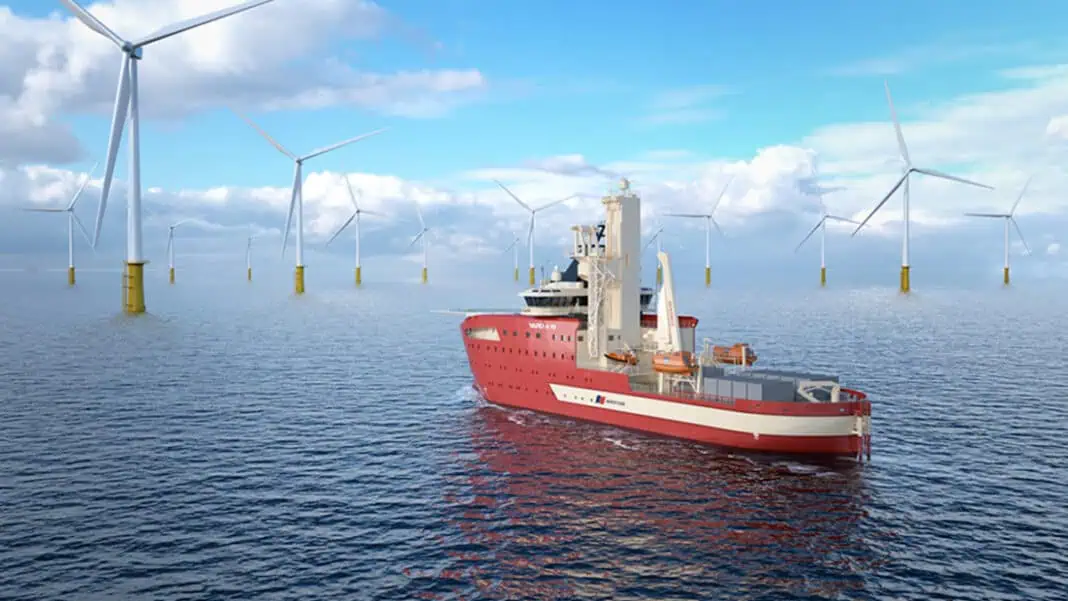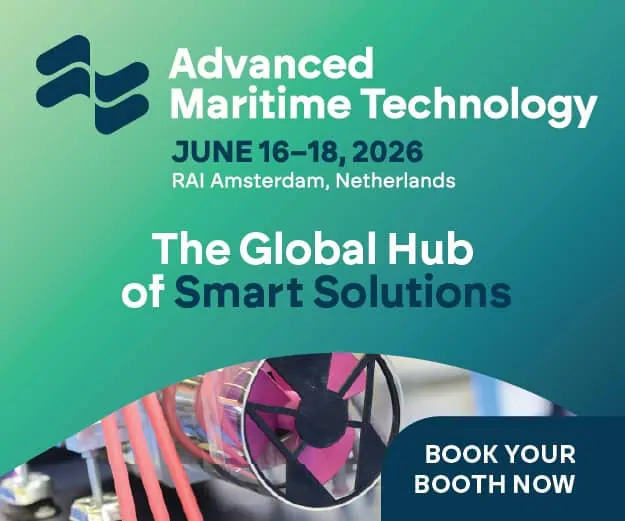VARD announce its participation in the NAVHYS project, a European innovation initiative aimed at developing a zero-emission Service Operation Vessel (SOV) powered by liquid hydrogen. The project is led by ArianeGroup, the leading industrial company in the field of civil and military launchers, and brings together a consortium of industry leaders to advance sustainable maritime solutions.
Together with eleven partner companies the project will develop innovative solutions for a liquid hydrogen (LH2) storage and fuel system. The system will be integrated in a SOV ship designed by VARD for North Star and obtain an Approval In Principle by Bureau Veritas.
The project is supported by the Clean Hydrogen Partnership and its members and co-funded by the European Union.
“With this project we underline our commitment to be a leader in maritime decarbonisation and demonstrate how we work closely with our customers and business partners to achieving common development goals. We look forward to taking on this exciting ship design challenge!” – Henrik Burvang, project leader for VARD and Research and Innovation manager
Building on its experience of using liquid hydrogen as a fuel for Ariane rockets, ArianeGroup and partners are launching the European NAVHYS* project. Supported by the Clean Hydrogen Partnership and co-funded by the European Union, NAVHYS aims to develop innovative solutions for storing and using liquid hydrogen (LH2) as an energy carrier for maritime transport.
NAVHYS’ goal is to provide a concept for a below-deck LH2 storage and fuel system for an SOV to propose a fully decarbonized maintenance solution for wind energy providers.
A major challenge is that integrating this technology will require major adaptations on board ships, as well as to port and maritime infrastructures.
The project brings together expertise from a wide range of fields, including the space industry, shipbuilding, ship operations and energy and safety, and seeks to drive forward shipping decarbonisation. Over the next 36 months, a series of milestones to successfully develop and test the system.
NAVHYS is focused on providing a concept that will reduce the environmental footprint and improve the energy efficiency of a hydrogen fuel system. The selection of NAVHYS as an active project, backed by the Clean Hydrogen Partnership channelling Europe’s hydrogen strategy through optimising research and innovation activities and co-funded by the European Union, is evidence that liquid hydrogen is a clear candidate for decarbonising the shipping sector.
The project’s name takes its inspiration from the Latin words ‘navis’ (ship) and ‘vis’ (force/power), put together with the first letters of hydrogen (‘hy’) – NAVHYS conveys ‘the power of hydrogen for shipping’.
“Current projects near the coast currently rely on gaseous hydrogen. For longer distances, liquid hydrogen makes more sense due to its energy density. However, the high requirements for cooling and insulating the cryogenic system are problematic here, says the project manager. – Our experience with Ariane 6 is helping us to tackle these problems.” – Marie-Sophie Nizou, Project Manager at ArianeGroup and coordinator of NAVHYS
The eleven partner companies are:-
- ArianeGroup is a long-term expert in the handling, management and safekeeping of LH2 for space applications.
- North Star is a shipping company that owns and operates a fleet of vessels engaged in the offshore industry, providing comprehensive operational experience.
- Vard Design (VARD) is the ship design and engineering arm of Vard Group.
- ENGIE (France) is an historical leader in gas marketing in France and the first operator of gas infrastructure in Europe.
- INERIS (France) contributes to the prevention of risks posed by economic activities to the health and safety of people and property and to the environment.
- Research Institutes of Sweden AB (RISE) has deep knowledge and experience regarding safety analysis and in particular hydrogen hazards and HAZID (hazards identification) workshops, as well as the IMO alternative design process (MSC.1-Circ.1455).
- Bureau Veritas Marine & Offshore (France) is a classification society which has built up extensive experience in gas fuelled- and (hybrid) battery-powered ships.
- LEITAT (Spain) is a technological centre that focuses on developing technologies across different sectors.
- The University of Birmingham – United Kingdom ranks among the world’s top 100 universities for research.
- European Research Institute for Gas and Energy Innovation (ERIG; Belgium) is a European research and development organisation that seeks to guide gas in the transition process towards a future renewable-based energy system.
- Gas and Heat (GAH; Italy) is a leader in the design, construction, supply and installation of systems and tanks for the propulsion and storage of liquefied gases for marine use and cargo transportation as well as for land storage facilities.
- Benkei (France) is a consultancy company supporting clients in defining and implementing their innovation strategies and collaborative projects.
- The Maritime Cluster of Northern Germany (MCN, associated partner) is a maritime network founded in 2011 with more than 380 members from business, science, politics and administration across the five federal states of northern Germany along the coastline from Poland to the Netherlands.













